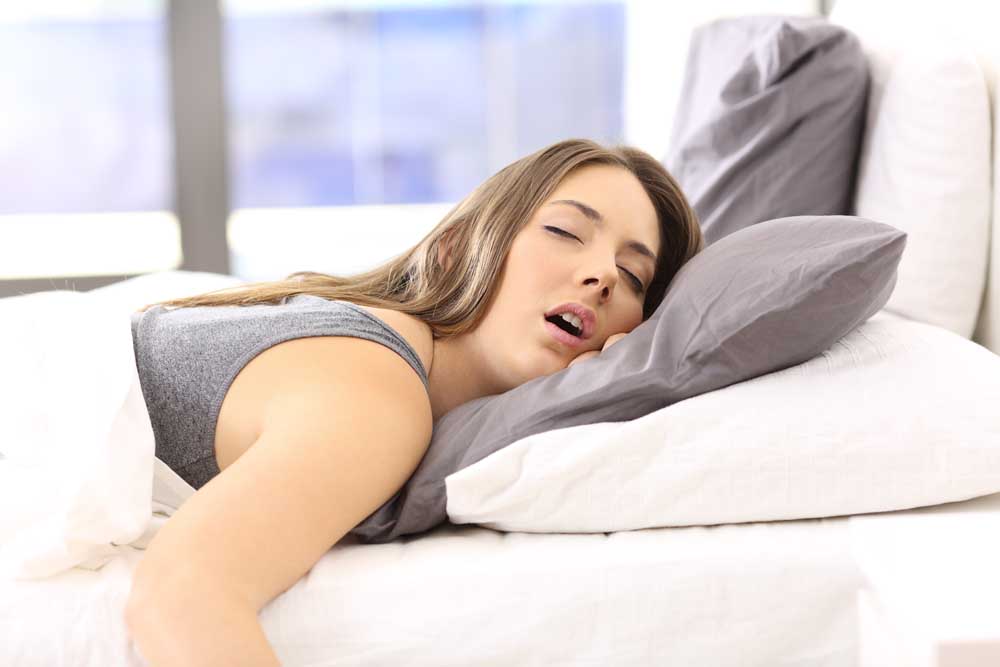
The 12 Best Mental Health Apps
(more…)


If you’re someone who spends most of the night tossing and turning and checking the time on the clock, you’re definitely not alone. According to the National Institute of Health, there are an estimated 50 to 70 million Americans chronically suffering from some kind of sleep disorder. That’s a lot of people walking around cranky and groggy!
People troubled by insomnia experience difficulty falling asleep, staying asleep, or getting back to sleep when they wake up at a very early hour. These sleep disturbances cause stress and anxiety, and make every day activities like working, remembering, and thinking clearly very challenging. Insomnia also typically causes irritability and fatigue. Persistent insomnia may also be a contributing factor of depression.
Insomnia is a complex condition that is still being studied. So far we do know that there are certain conditions that make people more prone to insomnia:
– Age – people over 60 are more susceptible
– Gender – females, on average, are more susceptible
– A history of depression can make you more susceptible
– Jet lag
– Shift work
– Anxiety
– Grief
– Depression
– Stress
– Stimulants like nicotine, caffeine, and alcohol taken too soon before bed
– An overactive thyroid
– Steroid use
– Certain prescription medications (if you’re currently taking any, speak with your doctor about insomnia side effects)
– Restless leg syndrome
– Menopause and hot flashes
– Gastrointestinal conditions such as heartburn
– Conditions that make it hard to breathe like asthma and sleep apnea
– Chronic pain
As I mentioned, anxiety and depression are two of the most common causes of chronic insomnia. In these cases, cognitive behavioral therapy (CBT) can help. CBT targets the thoughts and actions that are disrupting your sleep night after night. This therapeutic strategy encourages good sleep habits while relieving anxiety.
Some therapists may use a combination of relaxation therapy and biofeedback to reduce anxiety in clients. Others may employ different strategies like breathwork and positive thinking.
Counselors recognize that each client is an individual with individual needs. One-on-one talk therapy will help a counselor determine the specific causes – in some cases there may be multiple culprits – and put together a comprehensive strategy for relief.
If you are suffering from insomnia and would like to explore practical coping strategies for getting a better night’s sleep, please contact us. We have a counselor available to discuss how you might get the rest you need.

Sleep loss can have profound impacts on a body’s physical and emotional health. Bad sleep can increase irritability, lower mood, cloud concentration, and increase stress. If you are tired of being tired, it might be time to try something new to help you get back on track with a steady sleep schedule.
In this article, we will unpack a toolkit of coping strategies for helping you get to sleep and stay asleep with greater ease.
Do any of these nighttime thoughts sound familiar– “I should be asleep right now.” “Why can’t I just sleep??”
We beat ourselves up for not being able to go to sleep, as if it is in our power to make that happen.
MYTH: It’s my job at nighttime to fall asleep.
FACT: I CAN’T make myself fall asleep. It’s my job to relax.
The thoughts that express frustration about sleeplessness only increase heart-rate and make sleep more elusive. Take the pressure off by telling yourself that your body will go to sleep when it is ready. You are not abnormal for having struggles with sleep. Talk back to the catastrophic thoughts telling you that you’ll fail at work/school/life if you don’t get a good night’s sleep. That is rarely true and only amplifies pressure and keeps you awake. A counselor can help you change the negative thoughts about sleep and wakefulness that are keeping you stuck.
TIP: Stop clock-watching. Every time you look at the clock, you do math in your head, counting the number of hours you have left to sleep. This ramps up obsessive thoughts, making relaxation and sleep more difficult. Try covering your nightstand alarm clock with a towel.
Night tends to be the time of day when worried, anxious thoughts come to life. Some people find themselves laying in bed for hours with racing thoughts, worries about their to-do list for tomorrow, ruminating thoughts rehashing what happened earlier today, and concern for other looming unknowns.
If this describes you, try out a “Mind Dump” exercise. Grab a notebook (or a simple piece of paper) and write down all of the worries on your mind, as quickly as possible. Don’t stop to organize the thoughts, check spelling, or edit. Write down all of your worries, even if they seem too ridiculous to put on a page. A “Mind Dump” helps to contain worries so you don’t have to hold them in your head. It will help you rest peacefully, knowing you have a written memory aid for addressing those concerns in the morning when your mind is alert and better able to problem-solve.
The skill of “slowing” can be done both before getting in bed and after you are in bed.
Beforehand, choose activities before bed that decrease heart-rate and help you feel calm. Examples of such activities might include reading a book, practicing meditation, taking a bath, working on a puzzle, or something else you find relaxing. Pay attention to how your body feels in the 2 hours before bedtime and adjust evening activities accordingly. Perhaps watching those episodes of “Stranger Things” or “Walking Dead” are not as calming as you’d think.
Caution: TV and other screens can emit blue light that disrupts your body’s ability to wind down at night. If your device allows, turn on a blue light filter to prevent this interruption to your circadian regulation.
Once in bed, there are a number of relaxation skills you can implement to help you ease into sleep.
Following the protocols of Cognitive Behavioral Therapy for Insomnia (CBT-I), which research indicates may be more effective than medications in the long-term, your bed should be a sacred place for sleep and intimacy. That means that your bed is not the place for you to read books, watch TV, do work, or to WORRY. The goal is to re-train your brain to associate your bed with sleep so you can fall asleep within minutes. The rules are clear:
Book Recommendation: “Quiet Your Mind and Get to Sleep: Solutions to Insomnia for those with Depression, Anxiety, or Chronic Pain” by Colleen Carney and Rachel Manber provides some excellent CBT-i focused resources and tracking tools.
Wouldn’t it be nice if your body had an OFF switch, where you could flip it to SLEEP MODE as easily as you do you desktop computer? That’s most certainly what people are searching for when they try out quick fixes (substances, over-the-counter medications, etc.). Despite the promise of a good night’s sleep, some of these options come with risks, including the potential for them to become habit forming. Some, like benzodiazepines, come with more scary potential side effects, including a substantially increased risk for developing dementia.
Those that use alcohol to lull themselves to sleep, might find themselves with some unintended consequences. According to the National Sleep Foundation, alcohol blocks REM sleep, can interrupt your circadian rhythm, and, since alcohol is a diuretic, can wake you up in the middle of the night for a bathroom break.
If you need help with recurring insomnia, a counselor can help you customize a back-to-sleep toolkit just for you and your unique sleep struggles.